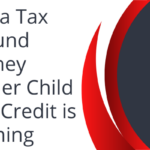Special Education Programs for ADHD Students
Special education programs for ADHD students represent a vital component of inclusive education systems dedicated to meeting the diverse needs of learners with attention-deficit/hyperactivity disorder (ADHD)· These programs are designed to provide tailored support, accommodations, and interventions to help students with ADHD overcome challenges, maximize their academic potential, and thrive in school settings· By addressing the unique learning profiles, strengths, and needs of students with ADHD, special education programs play a crucial role in promoting academic success, social-emotional well-being, and self-confidence among these learners·
At the core of special education programs for ADHD students is a commitment to providing individualized support and accommodations that address the specific challenges associated with ADHD, such as difficulties with attention, impulse control, organization, and time management· These programs employ evidence-based strategies and interventions, such as behavioral interventions, executive functioning skills training, multisensory instruction, and assistive technology, to help students with ADHD develop coping strategies, self-regulation skills, and academic competencies·
Moreover, special education programs for ADHD students often emphasize the importance of creating a supportive and inclusive learning environment that fosters understanding, acceptance, and collaboration among students, teachers, and families· Educators receive training in ADHD awareness, differentiation strategies, and positive behavior support techniques to effectively meet the diverse needs of students with ADHD and create a classroom culture that celebrates diversity, embraces neurodiversity, and promotes empathy, respect, and inclusivity·
In addition to academic support, special education programs for ADHD students may also offer social skills training, self-advocacy skills development, and counseling services to help students build positive relationships, navigate social interactions, and develop self-esteem and resilience· By addressing the social and emotional aspects of ADHD, these programs empower students to develop a positive self-concept, cultivate healthy coping mechanisms, and effectively manage the challenges associated with ADHD in various contexts·
Furthermore, special education programs for ADHD students often collaborate closely with parents, healthcare professionals, and community resources to ensure a coordinated and comprehensive approach to supporting students’ academic, social, and emotional needs· This multidisciplinary collaboration enables educators to access valuable insights, resources, and support services that complement and enhance the effectiveness of the special education program, ultimately promoting positive outcomes for students with ADHD·
When selecting a special education program for their child with ADHD, parents often consider factors such as the program’s expertise and experience in supporting students with ADHD, the qualifications and training of the teaching staff, the availability of specialized services and interventions, the school’s approach to inclusion and diversity, and the overall fit with their child’s individual needs and preferences· By collaborating with educators, advocating for their child’s needs, and actively participating in their child’s education, parents play a crucial role in supporting their child’s success in a special education program for ADHD students·
In conclusion, special education programs for ADHD students play a vital role in providing tailored support, accommodations, and interventions to help students with ADHD succeed academically, socially, and emotionally· By addressing the unique challenges associated with ADHD and fostering a supportive and inclusive learning environment, these programs empower students to reach their full potential, develop self-confidence, and become independent, resilient learners who thrive in school and beyond






